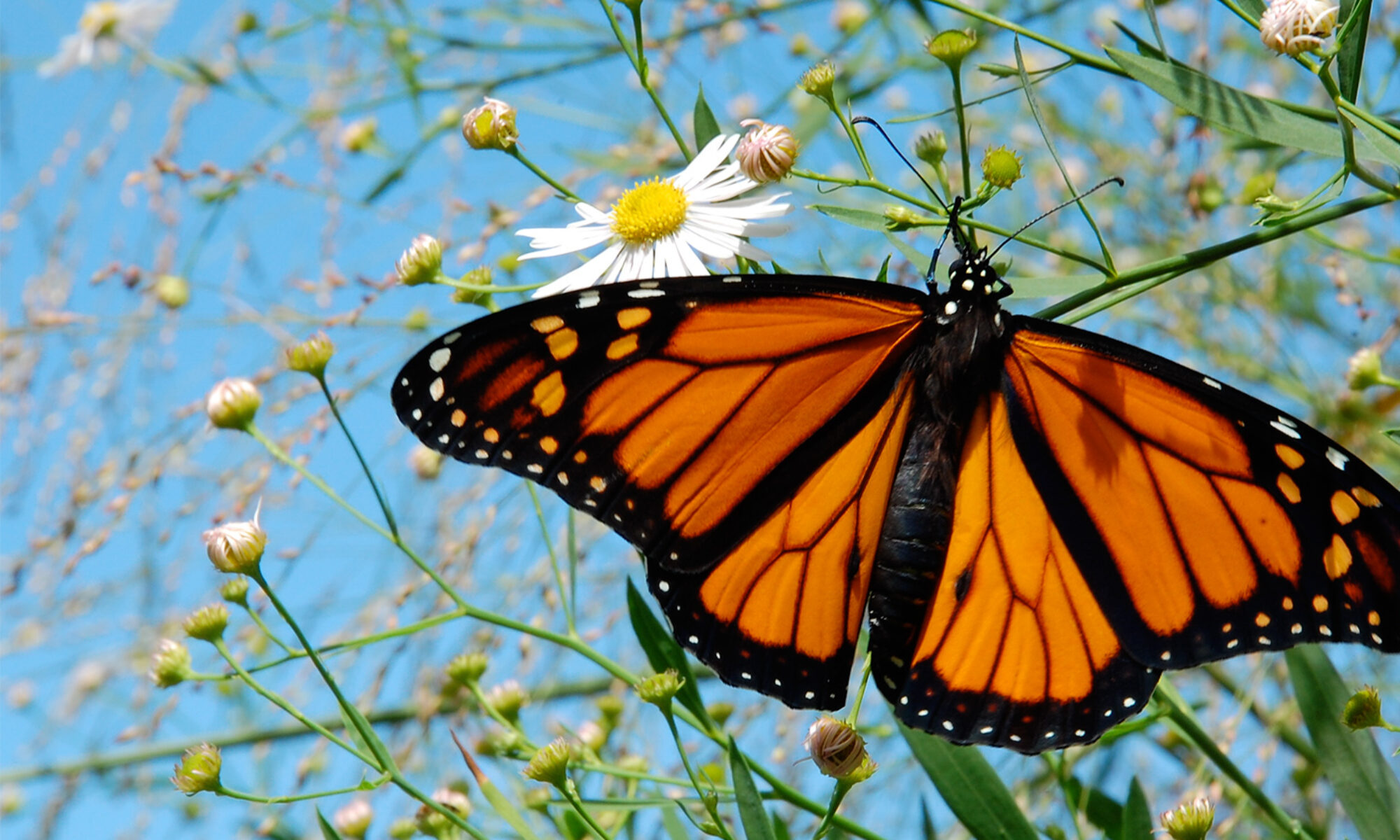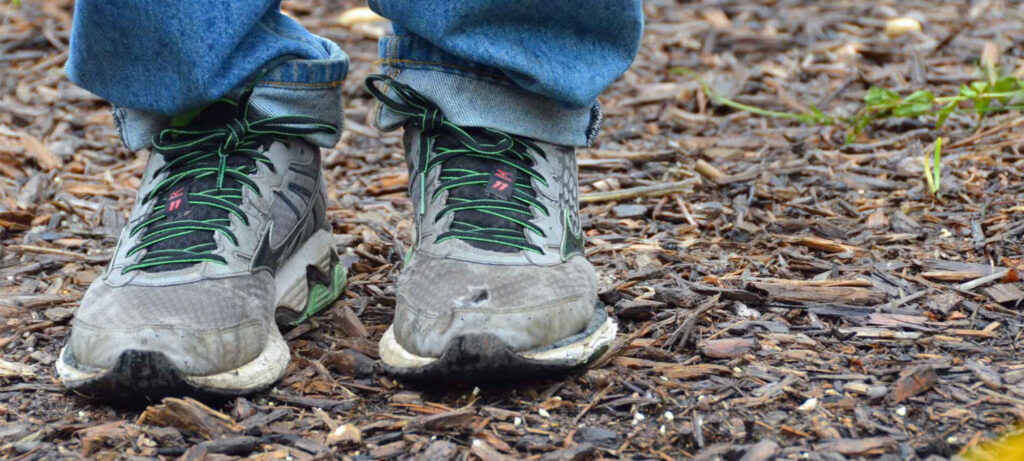
Our habitat garden is more than just for wildlife. It’s a wonderfully relaxing and joyful place for people, too. We can’t imagine going back to a boring, sterile landscape devoid of life.
The “habitat basics” for wildlife are food, water, cover, and a place to raise young, along with using earth-friendly gardening practices.
And these are the elements of a healthy habitat for people, too!
Here I am enjoying our pollinator garden. This photo was taken to accompany an article in the Wall Street Journal on pollinators!
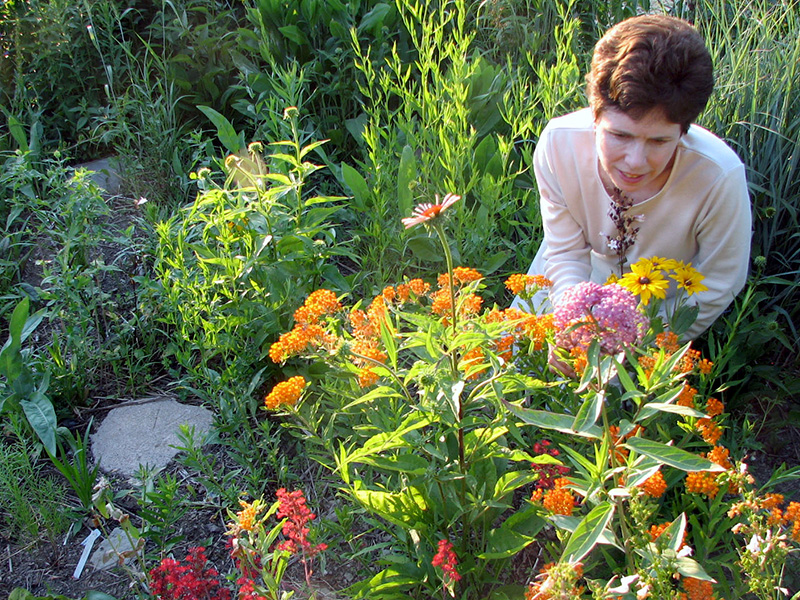
Food
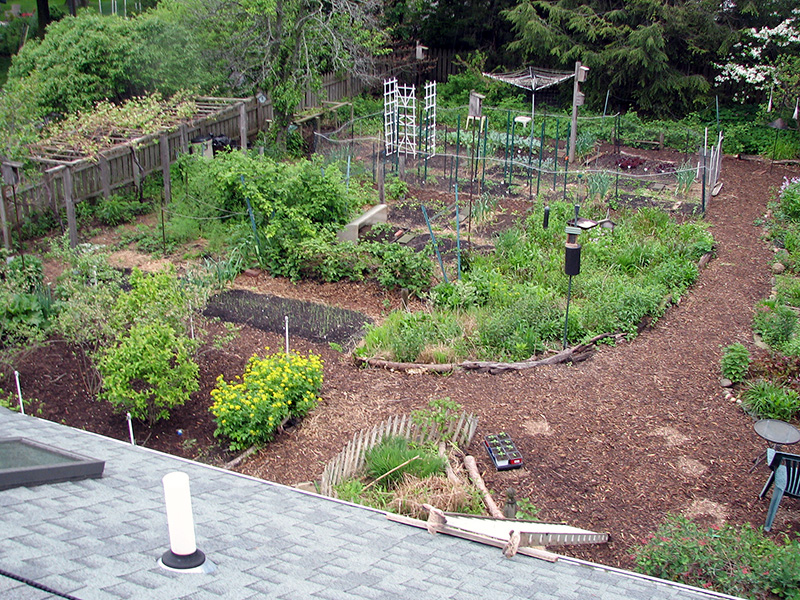
We use a good bit of our smallish 180’x80′ yard to grow some of our food in Our Edible Garden. Everything to the left of the semi-circular meadow area is used for growing food, including a grape arbor, blueberries, raspberries and annual crops.
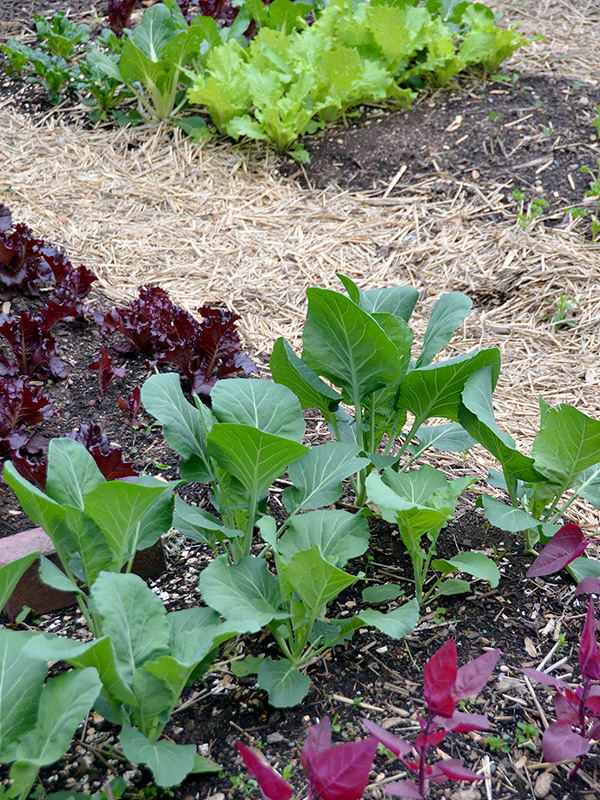
It’s very satisfying to know where at least some of our food is coming from, and that it’s as fresh as food could possibly be.
It’s also reduces our food’s carbon footprint, not just for transportation but for eliminating packaging and use of pesticides/fertilizers.
In addition, we’re requiring less of the world beyond our yard to be used to produce food for us, resulting in more space for habitat.
And since we garden organically with no pesticides or chemical fertilizers, we know we’re not eating any toxic chemicals along with our food. Our compost-rich, healthy soil grows plants that are especially healthy and healthy for us.
This is what Eliot Coleman, author of The New Organic Gardener and other books, calls “deep organic,” as opposed to store-bought organic, which merely means that no pesticides were used. Not using pesticides is important but it’s not the same as growing plants in truly healthy organic soil.
This is the most likely reason that some studies conclude that organic food isn’t healthier than non-organic food. Simply not spraying pesticides to meet the “organic” certification doesn’t mean the soil they’re growing is as healthy as it should be to produce nutritious food.
Water
Inside our home, we get our water not from a bottle but from the tap (and ultimately from the lakes we’re trying to protect).
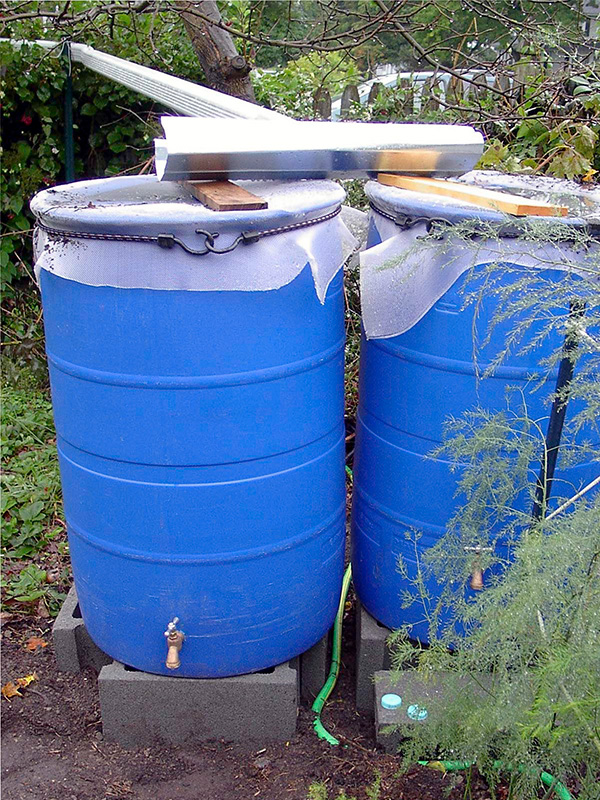
Outside our home, we try to conserve any water that falls on our land.
Besides using this water in our ponds and gardens, using water captured on-site helps keep our community’s lakes, rivers, and streams clean and healthy. And by not using pesticides or other chemicals, we’re not contributing to the ongoing HAB (harmful algal bloom) problem in our local lakes, caused by the excessive lawn fertilizers going into our lakes — from any landscapes in the watershed.
Cover
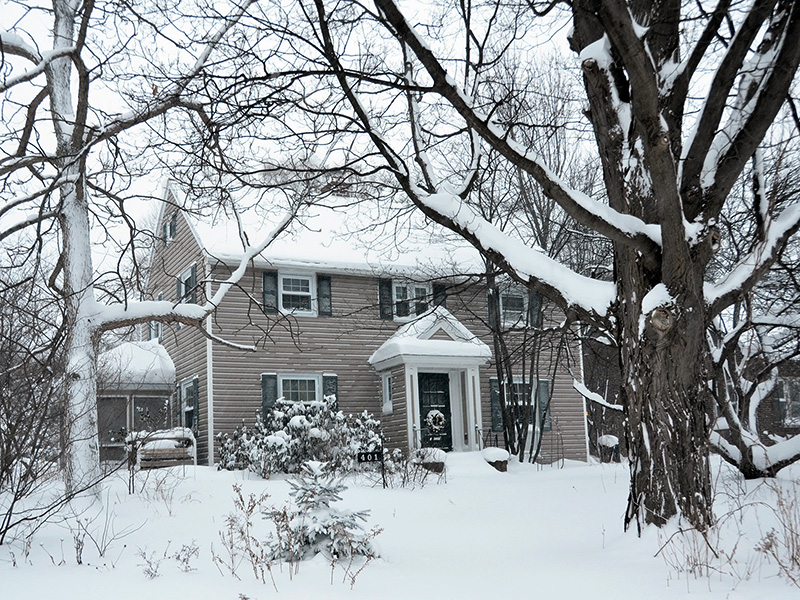
Our human “cover,” of course, is our house. Now with our empty nest, we understand that our house is far larger than we truly need (though not a McMansion by any means). Though we like our house, we could leave it since, after all, it’s just a house. But it would far more difficult to leave our yard and all the creatures we’ve provided for — and it would be hard to start over at our ages (now in our 70s and 80s).
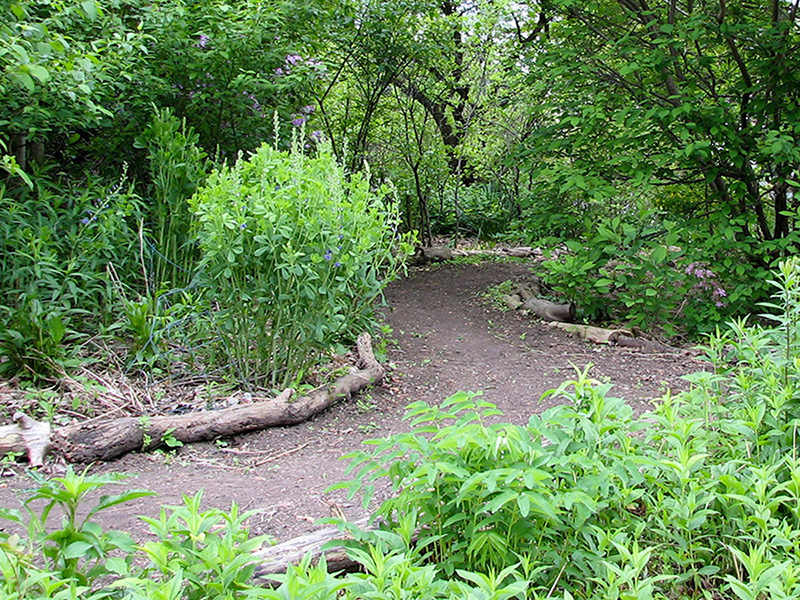
We’ve come to understand that we in the developed world must reconsider the size of our homes and especially the stewardship of our yards for the sake of life on earth, including our descendants. Besides our house providing cover indoors, our trees and shrubs provide cover for people outdoors, too. These areas are especially appealing on a hot day.
A place to raise young
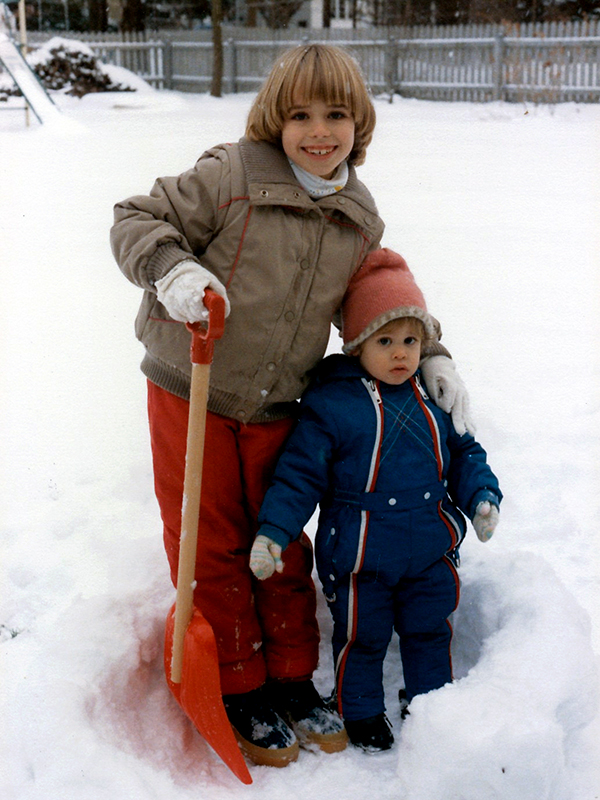
We regret that our children were grown by the time we converted our yard to a habitat garden.
Even so, our children experienced a bit more of the natural world than many other children since we’ve always had gardens of some sort — always including an edible garden — and we spent many vacations tent camping in national and state parks all over the country.
But we’re looking forward to sharing our gardens with our grandchildren as they become old enough to visit in the summer.
Here’s one of our grandsons helping process some of our garlic crop.
Children, especially, need a connection with nature as well as a connection with how their food is grown.
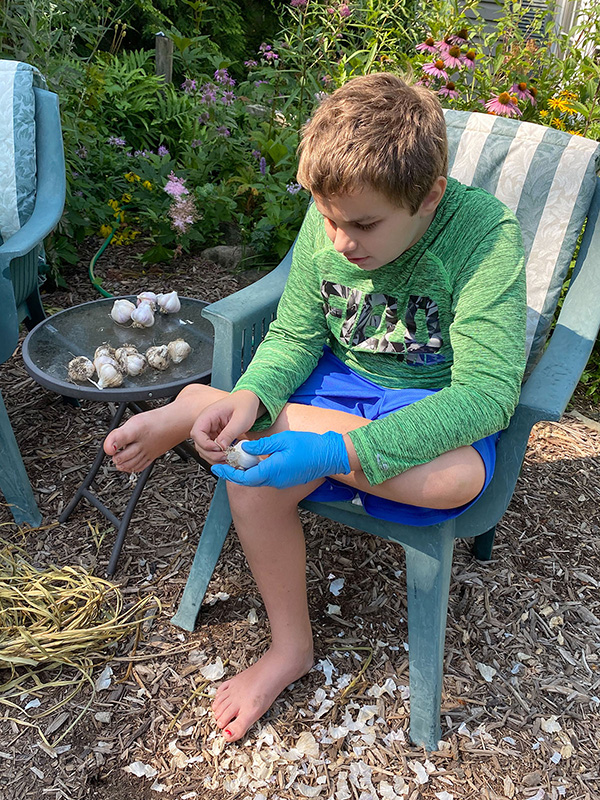
Earth-friendly gardening practices
The same practices that provide a healthy environment for wildlife also create a healthy environment for people.
Besides the obvious benefits to human health, we take great satisfaction knowing that we’re being good stewards of the land that has been entrusted to us, especially because the planet we leave our children and grandchildren will be our most important legacy for their future.
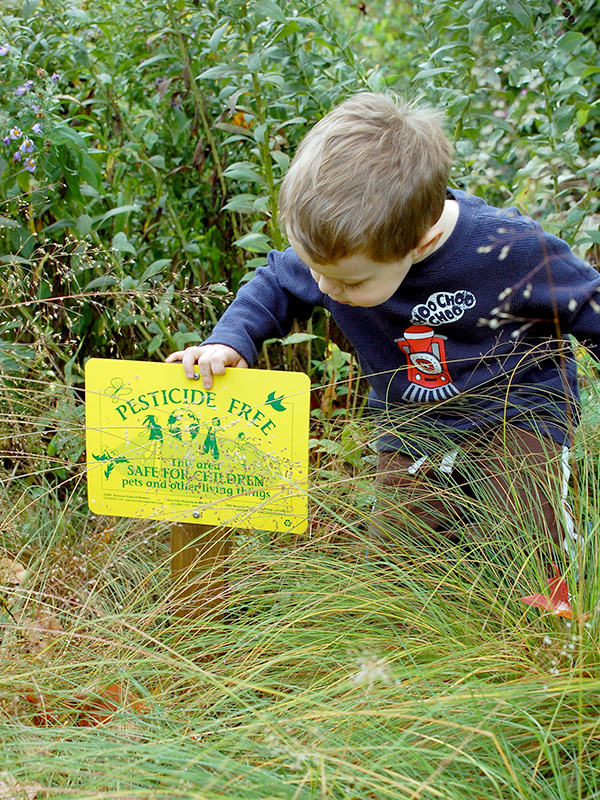
But there’s more
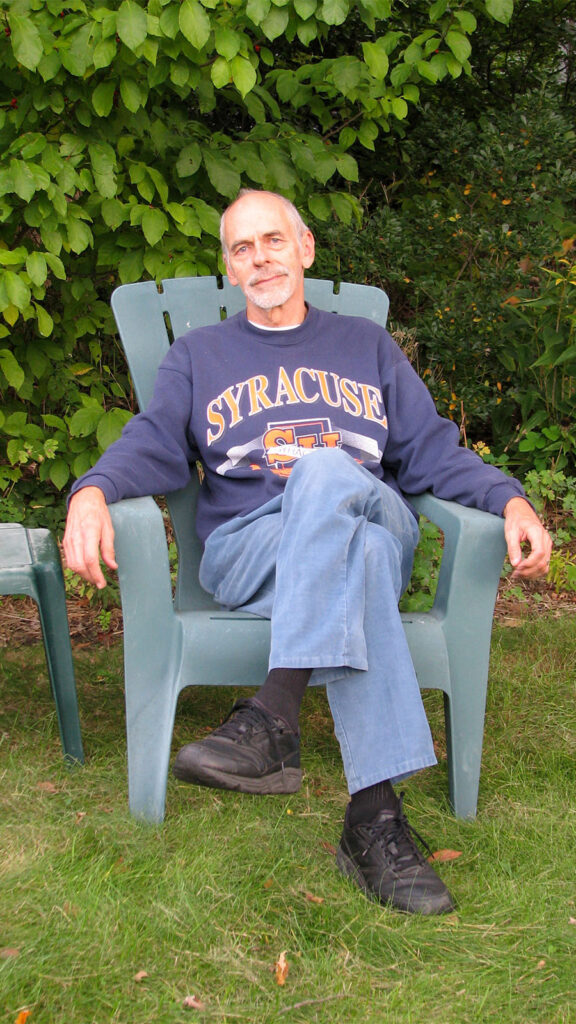
I’m sure animals don’t “appreciate” what we provide. They just live life. They don’t have to make an effort to connect with nature. They live in it.
But connecting with nature is certainly good for people. Humans are just built that way. And what better place to reconnect with the natural world than in our own yard?
Our habitat garden provides a connection with life itself that we just wouldn’t have otherwise.
One of my most vivid memories of 9/11 and the days following, when the world seemed so dark, is sitting in our backyard with the blue jays and the chipmunks under blue, sunny skies.
It was very comforting to know that despite tragedy, life continued. Many people have found solace in nature, and this can happen right at home with a yard full of life.
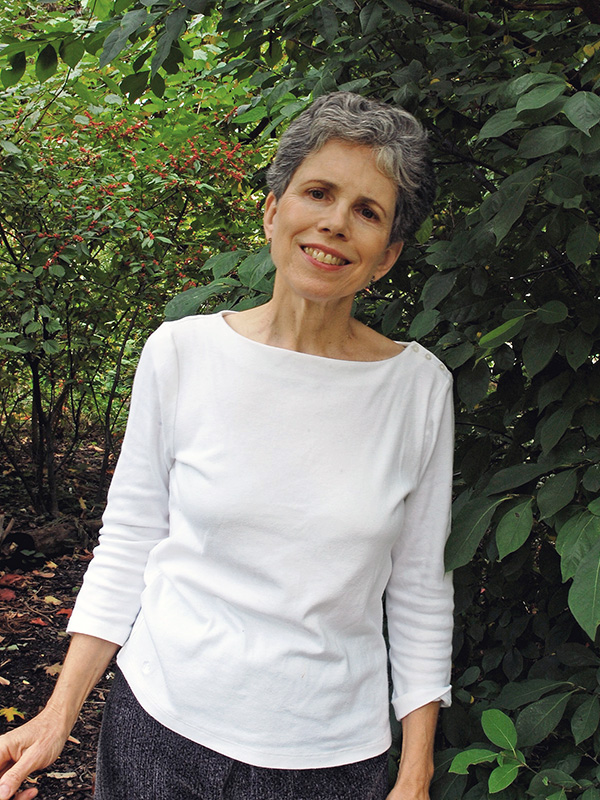
And when the Covid-19 pandemic hit, we felt so fortunate that we had a living landscape to inhabit, birds and other creatures whose lives we could share, and plants to appreciate as we sheltered at home.
It’s sad that our society has increasingly isolated itself from the natural world and deprived people of the comforts it can bring.
Resources
- SUNY-ESF video:
- The Humane Gardener:
- Biomimicry Institute:
- Choose Natives:
- People and Nature:
- Washington Post:
- NYTimes:
- Science Daily:
- Ecological Landscape Alliance:
- American Society of Landscape Architects:
- Health benefits of nature – Summary of the many benefits of being in nature
- Harvard Health Letter:
- DavidSuzuki.org:
- The 30×30 Challenge – Take the Challenge to reconnect with nature
- Our World:
- The Atlantic:
- Audubon Society:
- Good News Network:
- Civil Eats:
- Scimex:
- Grist:
Books
- Robinson, Jo Eating on the Wild Side: The Missing Link to Optimum Health – “The next stage in the food revolution: a radical way to select fruits and vegetables and reclaim the flavor and nutrients we’ve lost.” This changed how we thought about food and how to choose and prepare it.
Videos
- TED Talks:
- OYR (One Yard Revolution):
- One Yard Revolution – Frugal and sustainable organic gardening – Excellent series!
- Huffington Post:
- VIDEO: ‘Nature Deficit Disorder’ might be made up, but the health benefits of being outside are real – by an M.D. who is also an improv comedian and health journalist
- Nature RX:
- Nature-Rx Part 1 – “Ask your doctor if nature is right for you,” a humorous (but serious) parody of pharmaceutical ads!
- The Humane Gardener:
Reflections
The Peace of Wild Things
When despair for the world grows in me
and I wake in the night at the least sound
in fear of what my life and my children’s lives may be,
I go and lie down where the wood drake
Rests in his beauty on the water, and the great heron feeds.
I come into the peace of wild things
who do not tax their lives with forethought
of grief. I come into the presence of still water.
And I feel above me the day-blind stars
waiting with their light. For a time
I rest in the grace of the world, and am free.
~ Wendell Berry, Collected Poems, 1985
Humans are disappearing from the outdoors at a rate that would make them top any conservationist’s list of endangered species.
~ Tom Gill, from the David Suzuki Foundation
The most fundamental message is for people to remember that the environment is not just something that they visit on weekends or during their summer vacation — that the environment is all around us, that it is in us and we are in it, and that it profoundly influences our health.
~ Dr. Philip Landrigan, Director, Children’s Env. Health Center, Mt. Sinai Medical Center
Until mankind can extend the circle of his compassion to include all living things, he will never, himself, know peace.
~ Albert Schweitzer (1875-1965)
Nature holds the key to our aesthetic, intellectual, cognitive and even spiritual satisfaction.
~ Edward O. Wilson
In short, the brain evolved in a biocentric world.
~ Edward O. Wilson
The future will belong to the nature-smart—those individuals, families, businesses, and political leaders who develop a deeper understanding of the transformative power of the natural world and who balance the virtual with the real. The more high-tech we become, the more nature we need.
~ Richard Louv, The Nature Principle
Those who contemplate the beauty of the earth find reserves of strength that will endure as long as life lasts. There is something infinitely healing in the repeated refrains of nature—the assurance that dawn comes after night, and spring after winter.
~ Rachel Carson
Man’s heart, away from nature, becomes hard; [the Lakota] knew that lack of respect for growing, living things soon led to lack of respect for humans too.
~ Luther Standing Bear (c. 1868-1939)
What would our lives be like if our days and nights were as immersed in nature as they are in technology?
~ Richard Louv, The Nature Principle: Reconnecting with Life in a Virtual Age
We cannot protect something we do not love, we cannot love what we do not know, and we cannot know what we do not see. Or hear. Or sense.
~ Richard Louv
For 2.5 million years, humans spent a huge share, if not virtually all, of their time outdoors. Today, many adults are spending more hours on screens than outside. … Nature is even disappearing from our books, songs and culture, say researchers who looked at nature-related words in popular works during the mid-20th century. Our mental and physical health has declined alongside our estrangement from the outdoors.
~ Michael Coren, Washington Post Climate Advice columnist
All men are brothers, we like to say, half-wishing sometimes in secret it were not true. But perhaps it is true. And is the evolutionary line from protozoan to Spinoza any less certain? That also may be true. We are obliged, therefore, to spread the news, painful and bitter though it may be for some to hear, that all living things on earth are kindred.
~ Edward Abbey, naturalist and author (1927-1989)
Currently much of civilization treats nature as separate. In the future access to the outdoors will become a new civil right, as people seek to rediscover their place in nature. It’s not about hugging trees. It’s about healing a painful disconnection from what genuinely restores and sustains us.
~ Justin Bogardus, writer/director of Nature Rx
But not everyone I guess:
I love nature, I just don’t want to get any of it on me.
~ Woody Allen
